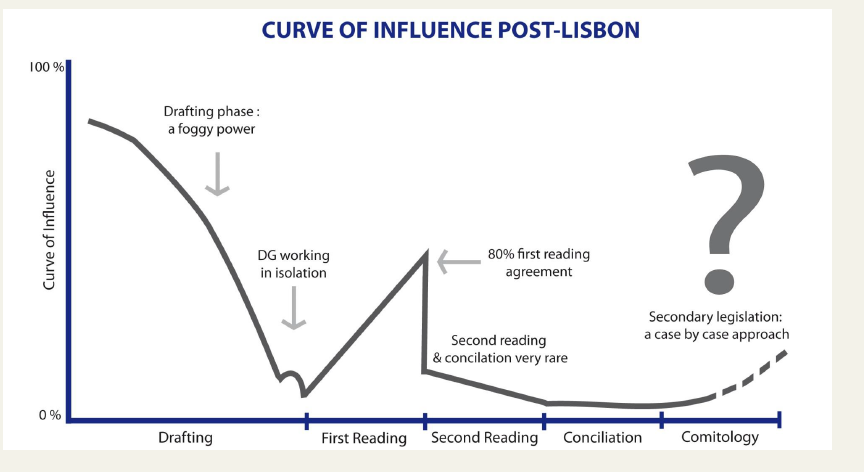I am just off to give a talk to the College of Europe on lobbying.
One of the points I will mention is the importance of framing the policy debate.
That means stepping in early to provide the intellectual groundwork for a new policy or action.
This is not for the faint-hearted. It’s a long term commitment. It takes around 5 to 10 years.
Looking at the chart below from Daniel Guegen you’ll see that the greatest influence is in the very early stages.

How to change a broken system
As a policy wonk, I think the smarter play is to frame the debate from the very beginning, and ideally before it has even started.
WWF ran a programme of work on the implementation of the CFP. It was clear that it was not working. Fish stocks were in a bad way.
So, instead of trying to reform a broken system, we looked to speed up the changes to the rule book.
The problem was that to do that the Commission had no intention of re-opening the broken CFP, or perform a review. They only needed to do a review in 2012. The Services were very clear about that. We had to find a way to force their hand.
We needed to win the battle of ideas from before the start. We asked the ‘gods’ to produce a policymaker focused report for us.
Key Dates
Looking at the dates below, you’ll see that the reform process kicked off far earlier than expected.
1.WWF Mid Term Review of CFP – October 2007
2.Court of Auditors Special Report 7/2007 – 4 December 2007
3.Green Paper – 23 April 2009
4.Public Consultation report – December 2009
5.European Commission’s Reform Package 13 July 2011
6.New CFP in force – 1 January 2014
7.Note: Article 35: Review of the CFP before end of 2012, Regulation 2371/2002/EC
Lessons Learned
A useful lesson learned that WWF’s Mid Term Review was prepared by independent experts. We asked the questions and paid for the study. There was no editorial control on the report.
The questions were simply the questions the Commission’s own rule book called for. There was no creative input from our side.
As a matter of professional courtesy, we asked the Commission’s fisheries experts to review the draft report for errors, which we corrected immediately.
The purpose of the Mid Term Review was to influence thinking to accelerate the reform. There was very little media converge. The twin purposes were to have an independent assessment of how the CFP was doing, and on the basis of that assessment, make solution focused recommendations to improve the CFP.
The report did not echo all of WWF’s positions. Despite these slight differences the report was published in full. There was no airbrushing of inconvenient words. The report was stronger for it. Airbrushing weakens the value of the report.
That the report’s authors were seen as independent experts, who were often used by governments and the Commission, to undertake reviews, was beneficial.
That many of the Commission’s proposals mirrored the Mid Term Review is of course purely coincidentally.